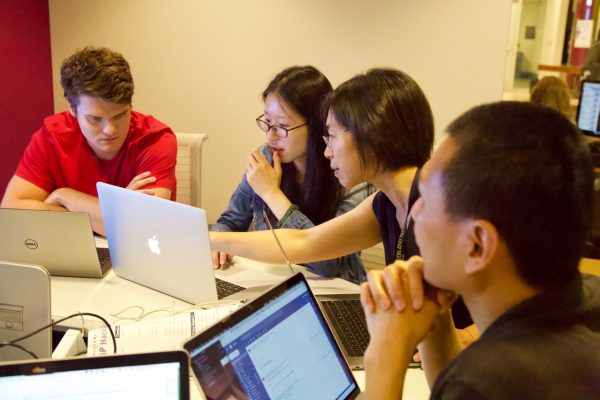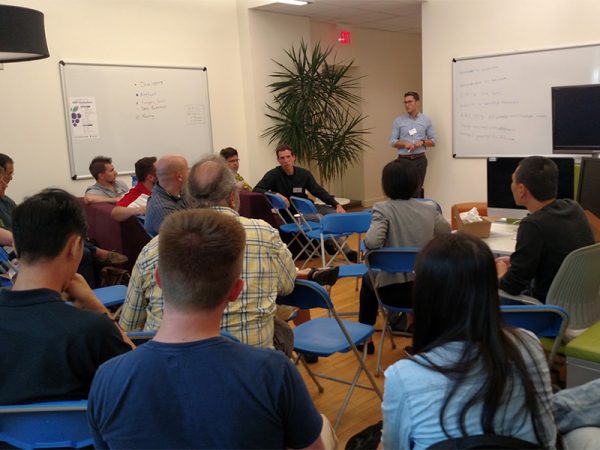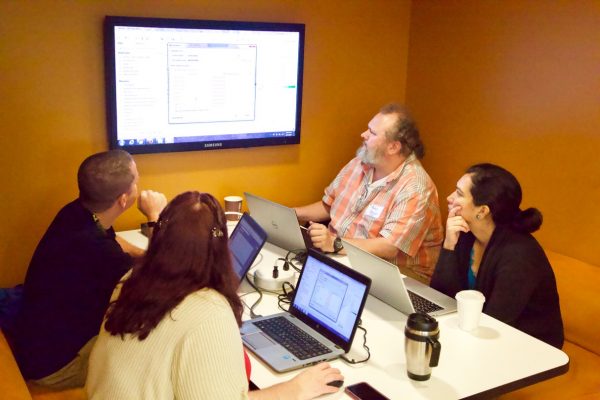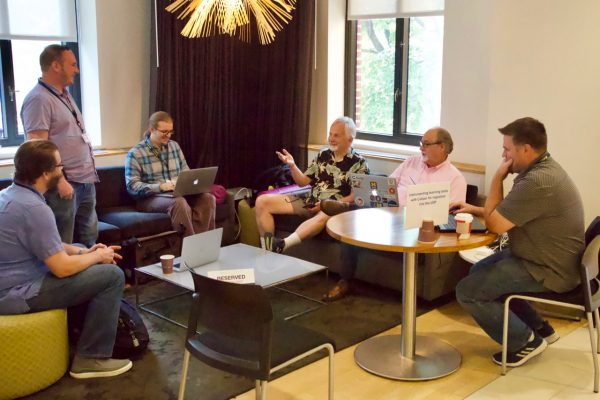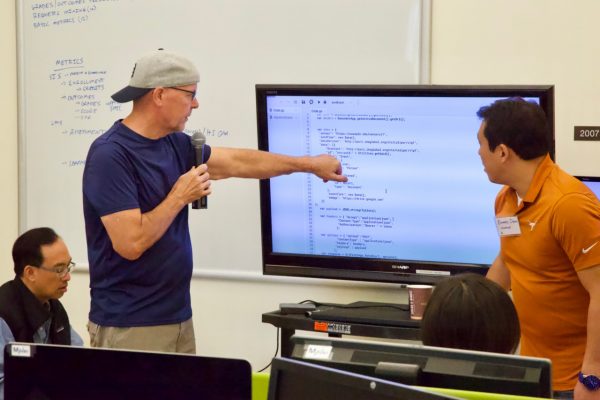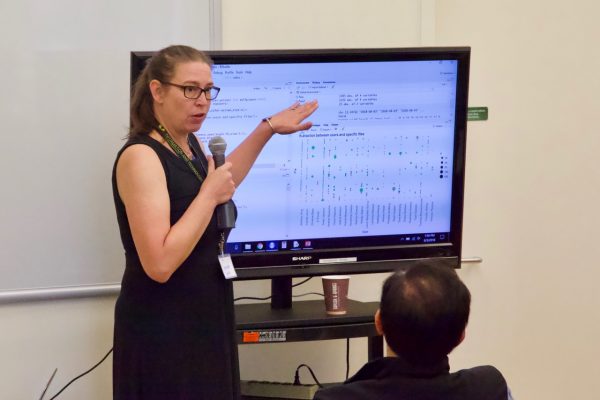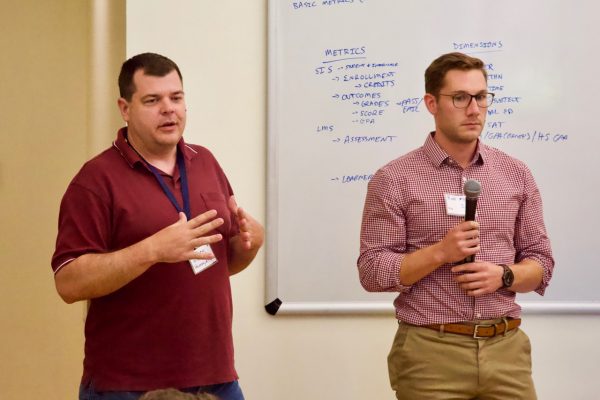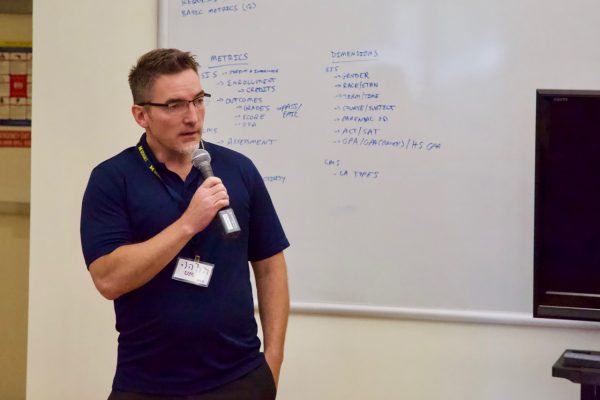On August 2-3, U-M hosted eight of our peer institutions from the Unizin consortium, as well as developers from Google, to participate in a hackathon using the newly developed Unizin Data Platform (UDP). The UDP is a cloud-based, learning analytics infrastructure that commonly models behavioral, performance, and demographic dimensions of teaching and learning data.
Participants used a representational data set (free of identifying information) to explore several contemporary teaching and learning challenges. For many of our peer institutions, this was their first look at the potential of this new infrastructure to facilitate the development of learning analytics dashboards, performance monitoring, new learning tools, and the advancement of the learning sciences.
Sharing ideas
“This was a great opportunity to meet other like-minded professionals and exchange experiences in a time-constrained, adrenaline-pumping, hands-on setting,” says T.K. Lee, a research and development engineer from Penn State University. Erik Scull, principal online instructional developer at Indiana University called the hackathon, “A great opportunity to brainstorm new integration ideas, and to peek over the shoulders of other devs for inspiration.”
U-M is the lead institution of this effort within Unizin, a nonprofit consortium of 25 leading universities dedicated to promoting affordability, access, and learner success in digital education. This event showcased the impressive progress made over the past six months in building the UDP’s infrastructure on the Google Cloud Platform (GCP). As U-M School of Information professor and hackathon participant Charles Severance put it, “Finally, we’ve got a place were we can store all the data and get it back out.”
Exploring challenges
Finally, we’ve got a place were we can store all the data and get it back out.
The Unizin consortium offers the academy an opportunity to retain strategic data assets and to provide a counterbalance to the harvesting of student learning data by commercial entities with varying motivations. The university believes that learning analytics data needs to be managed in a transparent and respectful manner that secures students’ privacy and empowers faculty and students to leverage data towards better learning outcomes and scholarly growth.
Next steps
The next phase of development will enable research into the advancement of the learning sciences, develop better pedagogical tools and methodologies, deliver personalized learning at scale, and ultimately improve student success outcomes. For example, ITS Teaching & Learning is currently working with Stephanie Teasley from SI and Stewart Karabenick from SoE to leverage the UDP to build a student-facing service to help students with self-regulated learning and provide “nudges” to improve student study behaviors.
“University engagement with the Unizin Data Platform is essential to drive its development in service of learning analytics,” said Etienne Pelaprat, Unizin chief technical officer, “we are grateful for U-M’s leadership as we break new technical ground to better serve our mission.” Edward Doan, customer engineer for Google for Education, agrees: “I had a fabulous time at the Unizin hackathon. I was really blown away by the enthusiasm for learning analytics and the willingness of participants to roll up their sleeves.”
Special thanks to Joanna Elliott and Joe Gorde at the School of Education for providing superb support in hosting the event in the Brandon Center for the Study of Education Practice. The facility provided the perfect mix of collaboration spaces and technical amenities.

